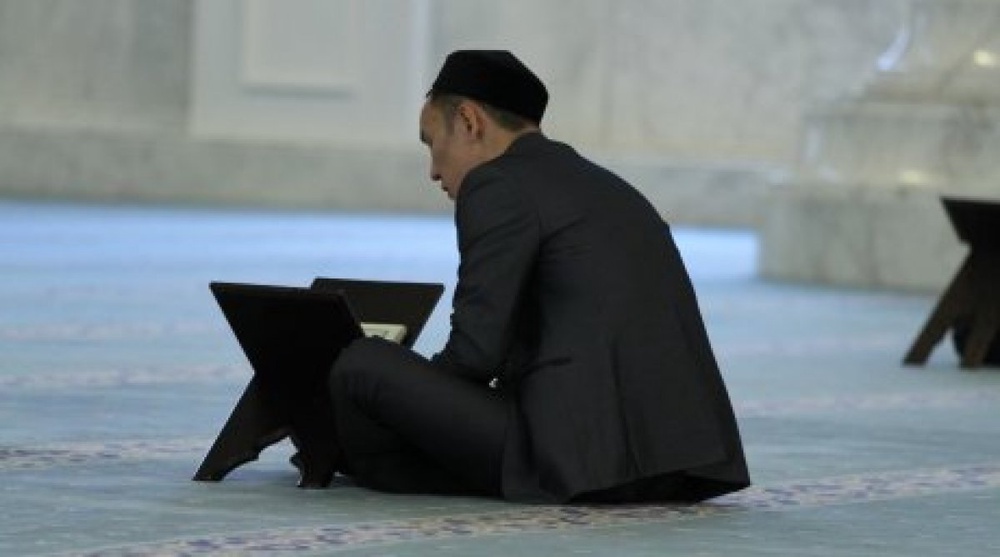
When raised in 2011 the question of introducing Religious Studies into the school curriculum caused a lot of controversy. The main concern was, and still is, who will teach these classes? A member of the Majilis (lower house of the Kazakh Parliament) Talgat Yergaliev has proposed engaging members of the Muslim clergy in teaching Religious Studies at schools, Tengrinews reports. “Religious Studies are taught at schools for one hour a week and only in the 9th grade (at the age of 15). The class is taught by History teachers after they pass a religious studies course,” said Yergaliev. He added that teaching Religious Studies for one year is not enough. It only results in utter ignorance that leads young school graduates to be recruited by radical Islamic organizations. “How should we tackle the problem? Maybe, we need to have more hours (dedicated to Religious Studies) and engage professional Muslim clergy,” suggested the Majilis member addressing the Minister of Education and Science Aslan Sarinshipov. In 2011, the Head of the Muslim Association of Kazakhstan Murat Telibekov expressed his disapproval of using the clergy to teach the classes. “I think we should attract teachers with university degrees. It is not desirable to have the clergy teach this new class. I believe this would make the instructing biased and create a prejudice towards a certain faith,” said Telibekov. The Minister forwarded this sensitive question to the Vice Minister Yesengazy Imangaliev, who is responsible for high school education sector. Imangaliev said that to address the issue of instructors for the Religious studies class, an inquiry was sent to a number of private and non-governmental organizations to attract field experts to conduct this kind of work among students. But not all the Majilis members were swayed with Yergaliev’s proposal. Zagipa Balieva, a Majilis member, suggested, “to be cautious in regards to religion”. “We are a secular country and we must not forget about that,” said Balieva. She agreed that having extra hours dedicated to Religious Studies could be beneficial, but only as an introductory course. “We are not preparing them (students) for religious institutions. I want to stress, that we are only here to teach the fundamentals,” concluded Balieva. The Chairman of the Agency for Religious Affairs of Kazakhstan Marat Azilkhanov called to introduce the Religious Studies into the school curriculum as a “measure for prevention of religious extremism”, Strategy Kazakhstan 2050 website reports. According to Azilkhanov, the curriculum includes introduction to Islam, Christianity and Buddhism. It is believed that Religious Studies will enhance tolerance and mutual respect among the Kazakhstani youth.





When raised in 2011 the question of introducing Religious Studies into the school curriculum caused a lot of controversy. The main concern was, and still is, who will teach these classes? A member of the Majilis (lower house of the Kazakh Parliament) Talgat Yergaliev has proposed engaging members of the Muslim clergy in teaching Religious Studies at schools, Tengrinews reports.
“Religious Studies are taught at schools for one hour a week and only in the 9th grade (at the age of 15). The class is taught by History teachers after they pass a religious studies course,” said Yergaliev. He added that teaching Religious Studies for one year is not enough. It only results in utter ignorance that leads young school graduates to be recruited by radical Islamic organizations. “How should we tackle the problem? Maybe, we need to have more hours (dedicated to Religious Studies) and engage professional Muslim clergy,” suggested the Majilis member addressing the Minister of Education and Science Aslan Sarinshipov.
In 2011, the Head of the Muslim Association of Kazakhstan Murat Telibekov expressed his disapproval of using the clergy to teach the classes. “I think we should attract teachers with university degrees. It is not desirable to have the clergy teach this new class. I believe this would make the instructing biased and create a prejudice towards a certain faith,” said Telibekov.
The Minister forwarded this sensitive question to the Vice Minister Yesengazy Imangaliev, who is responsible for high school education sector. Imangaliev said that to address the issue of instructors for the Religious studies class, an inquiry was sent to a number of private and non-governmental organizations to attract field experts to conduct this kind of work among students.
But not all the Majilis members were swayed with Yergaliev’s proposal. Zagipa Balieva, a Majilis member, suggested, “to be cautious in regards to religion”. “We are a secular country and we must not forget about that,” said Balieva. She agreed that having extra hours dedicated to Religious Studies could be beneficial, but only as an introductory course. “We are not preparing them (students) for religious institutions. I want to stress, that we are only here to teach the fundamentals,” concluded Balieva.
The Chairman of the Agency for Religious Affairs of Kazakhstan Marat Azilkhanov called to introduce the Religious Studies into the school curriculum as a “measure for prevention of religious extremism”, Strategy Kazakhstan 2050 website reports. According to Azilkhanov, the curriculum includes introduction to Islam, Christianity and Buddhism. It is believed that Religious Studies will enhance tolerance and mutual respect among the Kazakhstani youth.
youth
Central Asia
child
children
Christ
Christian
Education
extremist
Kazakh
Kazakhstan
Ministry of Education and Science
Muslim
news
religion
School
terrorism
Buddhist

 +7 (777) 001 44 99
+7 (777) 001 44 99



 Қазақша
Қазақша Русский
Русский English
English














































